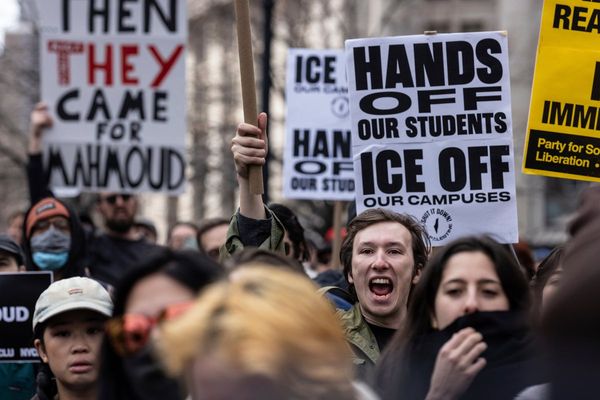
Tarn Taran, India – Raghbir Singh Bhangala often stands looking at his fields beyond the barbed-wire fence that marks the border between India and Pakistan. He stands on five acres of his own farmland in the Tarn Taran district of India’s Punjab state, while the remaining eight acres is on the other side of the fence.
Bhangala, now 78, has spent more than 25 years of his life fighting for the right to till his land, ever since it was declared a restricted area because it falls between the fence and the so-called “zero line” – the international border between India and Pakistan.
When the Khalistan rebellion, a separatist movement seeking to create a sovereign Sikh-majority state, was at its peak in Punjab between 1988 and 1991, the Indian government installed barbed-wire fences and gates along the 553-km (343-mile) international border, restricting access to 21,300 acres of farmland.

A 13.4-metre (44-foot) strip of land was carved out of farmers’ holdings, four metres (14 feet) were kept on Pakistan’s side, seven metres (22 feet) were on India’s side, and about three metres (11 feet) were in between.
Apart from that, another three-metre strip of the farmers’ land abutting the international border was restricted for patrolling by Indian security forces, according to documents accessed by Al Jazeera.
‘Do I have to pay for securing the borders?’
Bhangala alleges his land was neither officially acquired nor was there adequate compensation paid to him or the farmers from 220 villages whose land he says were taken away.
“Do I have to pay for the cost of securing the borders of India by giving up my own livelihood?” he asks.
Meanwhile, despite being legal owners of their land, farmers like Bhangala have been left at the mercy of India’s Border Security Force (BSF), which imposes restricted timings and checks on irrigation and other farming activities.
“The farmers have been stopped from going to their own fields,” says Bhangala in his native Punjabi language.
In 1996, Bhangala along with other anguished farmers, formed the Border Farmer Welfare Organisation and filed a petition in the Punjab and Haryana High Court, demanding the right to access their lands.
The petition was dismissed in 2011 after the BSF accused the farmers of being under the influence of Pakistan’s spy agency, the Inter-Services Intelligence (ISI).
Next year, Bhangala filed an appeal against the High Court order. In 2015, the court ordered the state of Punjab and the government of India to pay 10,000 rupees ($137) per acre annually to farmers as compensation for their loss.
The court also ordered Punjab state to acquire the 11-feet strip of land over which BSF conducts its patrolling.
“However, in the last three years, neither any compensation has been paid nor has the land been legally acquired,” Raghbir Singh, who also filed a contempt petition in the high court in December last year, told Al Jazeera.
‘Why leave us hanging?’
At a time when nationalist sentiments in India are high, driven by the right-wing government headed by Prime Minister Narendra Modi, Bhangala asks if the cost of securing the nation’s borders is to be paid by him and hundreds of other farmers.
“If they want our land, they can acquire it or compensate us. Why are they leaving us hanging in the middle?” he told Al Jazeera.

According to Bhangala, the Punjab government in 1990 decided that a fence would be erected at a distance of 50 to 150 metres (164 to 490 feet) from the international border with Pakistan.
“But the Central Public Works Department awarded ad hoc tenders to the contractors who erected random fences without following any regulations,” he alleged.
“Fences were still fine but they erected gates too. Even at that time, farmers did not protest. We surrendered our fundamental rights for our nation as the situation was tense in Punjab,” he said, referring to the security operation launched to check the Sikh separatist movement.
Bhangala said he owns a total of 13 acres of land, of which eight acres lies between the fence and the international border, declared a “restricted farming zone” by the authorities.
The output from the remaining five acres is about 75 quintals (7.5 tonnes) per season, which he said is far more than the output from the eight acres of land across the fence.
“Out of eight acres, I just harvest 25 quintals [2.5 tonnes] of produce,” he said.
Sarjit Singh Satnam, another farmer whose three acres of land is restricted, said, “We are only allowed to visit our fields between 10am and 4pm on weekdays. That means in a year we can only cultivate the farm for 200 days.
“Our entry is subject to a specific identity card issued by BSF after checks by CID, police, terrorism wing and revenue department. This I-card is only valid for six months to a year, after which we have to run for renewal again.”
Bhangala said the I-card is issued only to the person who owns the land.
“Rest of the family members cannot even visit the fields. Often we do not get labour during the sowing and harvesting period. The irrigation channels are also closed. At night the wild animals destroy our crops,” he said.

BSF did not reply to Al Jazeera’s queries, citing clearance for the international media from the foreign ministry. Al Jazeera is yet to receive a response from the ministry.
‘I own the land but it’s not mine’
Bhangala told Al Jazeera he still attends a tribunal set up by the court in Tarn Taran to hear the grievances of the farmers.
“At every other date, there is a dispute or a missing file or a bureaucratic delay,” he said.
Officials in Punjab, speaking on condition of anonymity, acknowledged that the farmers are due compensation. They, however, rejected allegations it was a contempt of the court order.
In 1994, the officials said, about half of the affected farmers were paid for the acquisition of their lands. But the farmers say the amount was far less than the market price at that time.
“The state of Punjab wants to repay the farmers but there is reluctance from the centre regarding the reimbursement,” an official told Al Jazeera.
Harpratap Singh Ajnala, a member of Punjab’s legislative assembly (MLA) from Ajnala in Amritsar district, told Al Jazeera no compensation has been paid to the farmers since 2017 and that the issue of compensation to farmers has been taken up with the federal government.
“After 2017, nothing has been paid. We have taken up the matter with the centre, but they do not care,” he said.
Ajnala said the compensation is to be equally shared between the state and the centre, as per the directions of the court. “When the centre’s compensation will come, Punjab would pay its bit too.”
But the legislator’s words have failed to reassure Bhangala.
“This land is my ancestral legacy. My father passed it on to me, I want to pass it to my son. But look at the fate. I own it, but this land is not mine.”







